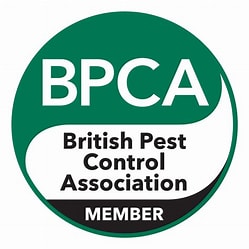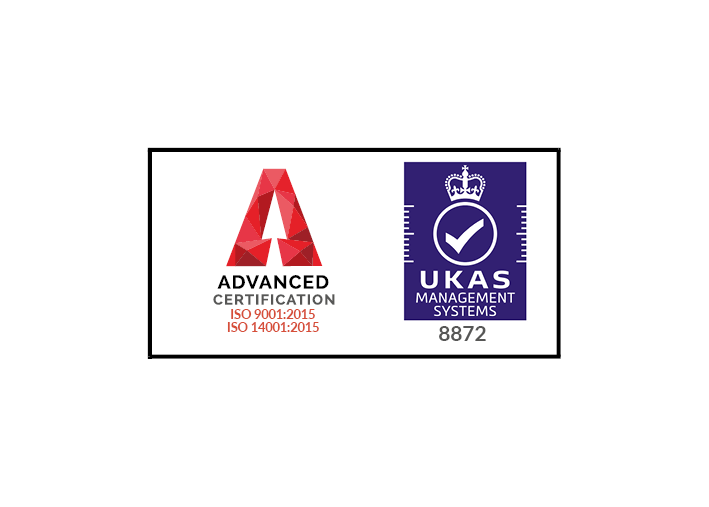Ant Killer Spray: The Ultimate Solution for Ant Infestations in 2025
Ants can invade your home in a flash, turning your kitchen or living space into their playground. I’ve been there, and it’s frustrating to deal with these tiny intruders. That’s where ant killer spray comes in handy. With the right product, you can reclaim your space and keep those pesky ants at bay.
Choosing the right ant killer spray isn’t just about picking the first one off the shelf. It’s about understanding what works best for your specific situation. From fast-acting formulas to long-lasting solutions, each option has its benefits. In this article, I’ll share insights on effective ant killer sprays and how to use them safely and efficiently. Let’s dive in and find the best solution for your ant problem.
What Is Ant Killer Spray?
Ant killer spray is a targeted solution designed to eliminate ant infestations in homes. These sprays contain active ingredients that disrupt the ant’s nervous system or digestive functions, effectively killing them upon contact or ingestion.
Ant killer sprays come in various formulations, including fast-acting and long-lasting versions. Fast-acting sprays provide immediate results, making them ideal for sudden infestations. Long-lasting formulas, however, leave a residual effect, ensuring ongoing protection against new ant invaders.
Most ant killer sprays are user-friendly, featuring spray nozzles for easy application. Common active ingredients include pyrethroids and neonicotinoids, which are known for their efficacy in exterminating ants. For example, products like “AntAway” contain permethrin, a popular choice for tackling stubborn ant issues.
When selecting an ant killer spray, consider the affected areas and the specific ant species, as some sprays are more effective on certain types, like carpenter ants or pavement ants. It’s crucial to follow the manufacturer’s instructions for safe and efficient use, ensuring effective results while minimising risks to pets and humans.
How Does Ant Killer Spray Work?
Ant killer sprays target the nervous system or digestive functions of ants, effectively eliminating infestations. These sprays come in different formulations, allowing for both immediate and long-term solutions against these pests.
Types of Active Ingredients
Active ingredients in ant killer sprays vary, and understanding them is crucial for selecting the right product. Common active ingredients include:
- Pyrethroids: These synthetic chemicals mimic natural insecticides found in chrysanthemum flowers. They disrupt nerve functions, causing paralysis and death in ants.
- Boric Acid: This ingredient targets the digestive system of ants. When ingested, it damages their stomach lining, leading to death.
- Fipronil: A neurotoxin affecting the central nervous system, it acts slowly, allowing ants to carry it back to the colony, which helps eliminate more ants.
Selecting the appropriate active ingredient depends on the specific ant species and the extent of the infestation.
Mechanism of Action
The mechanism of action in ant killer sprays is vital for understanding their effectiveness. Here’s how they work:
- Immediate Response: Fast-acting sprays deliver instant results. Once sprayed on an ant, the neurotoxin affects its nervous system, leading to quick incapacitation and death.
- Delayed Action: Long-lasting formulations such as those with boric acid require time to take effect. Ants consume the poison and return to the nest, inadvertently spreading it to others, including the queen. This method targets the entire colony over time, offering prolonged protection.
Using ant killer spray properly ensures maximum efficiency, minimizing risks to pets and humans while effectively tackling ant problems.
Benefits of Using Ant Killer Spray
Ant killer sprays provide effective solutions for managing ant infestations in and around homes. These products offer various advantages that make them a preferred choice for many.
Quick Elimination of Ants
Quick action characterises many ant killer sprays. Most fast-acting formulas contain powerful ingredients that incapacitate ants within minutes. For instance, sprays with pyrethroids target the ant’s nervous system, causing rapid paralysis. Brands like AntClean Pro demonstrate effectiveness by eliminating visible ants swiftly, allowing for immediate relief from pesky intrusions.
Easy Application
Easy application simplifies the process of using ant killer sprays. With user-friendly designs, most products feature convenient nozzles that allow for precise targeting of infested areas. Spraying requires minimal effort, and many products can be used both indoors and outdoors. For example, AntAway spray comes in a lightweight bottle, making it easy to handle during application. Following manufacturer instructions ensures safe and effective use, reducing time spent worrying about infestations.
Safety Considerations
Safety considerations are crucial when using ant killer sprays. Understanding potential risks ensures effective control while protecting both humans and pets.
Precautions for Use
I emphasise following the manufacturer’s instructions carefully. This includes recommended usage quantities, application methods, and safety gear. Always wear gloves and a mask when applying sprays to avoid skin irritation or respiratory issues. Ensure the area is well-ventilated during application. Keeping children and pets away from treated areas for the recommended time is essential. Store all products in original containers, away from direct sunlight and out of children’s reach.
Environmental Impact
I consider the environmental impact of ant killer sprays. Many sprays contain chemicals that can harm beneficial insects and contaminate water sources. It’s essential to choose environmentally friendly options when possible, such as products that use natural ingredients or biodegradable formulas. Reviewing the environmental ratings of different products helps determine their suitability for outdoor use. Selecting targeted sprays that minimise off-target effects aids in protecting non-target species and promoting a healthier ecosystem.
Tips for Effective Use
Using ant killer spray effectively involves specific techniques and the right application schedule. Proper use ensures optimal results while maintaining safety.
Application Techniques
Select the right areas for spray application. Focus on ant trails, nests, and entry points. Hold the spray nozzle about 15 to 30 centimetres away from the surface. Apply a thin, even layer to ensure thorough coverage without over-saturation. Aim for cracks and crevices, where ants often hide. Avoid spraying directly on food or surfaces that come into contact with children and pets. Consider using a targeted application method, like a wand applicator, for precision in hard-to-reach spots.
Frequency of Application
Follow manufacturer instructions for application frequency. Typically, reapplication occurs every two to three weeks, depending on the severity of the infestation and product type. Conduct regular inspections to monitor ant activity and retreat areas showing signs of resurgence. Long-lasting formulas may require less frequent use than fast-acting options. Always ensure proper ventilation during and after application to minimise exposure to fumes. If the product fails to eliminate the infestation after a few applications, consider consulting a pest control service for further evaluation.
Key Takeaways
- Understand Ant Killer Sprays: Ant killer sprays contain active ingredients that target and eliminate ant infestations, either by disrupting their nervous system or digestive functions.
- Choose the Right Formula: There are fast-acting sprays for immediate relief and long-lasting solutions that provide ongoing protection; selecting the right type depends on the severity of the infestation.
- Active Ingredients Matter: Common ingredients like pyrethroids, boric acid, and fipronil vary in their effectiveness, so it’s essential to know which works best for your specific ant species and situation.
- Application Safety: Always follow manufacturer instructions diligently, wear protective gear, and ensure the area is well-ventilated during use to minimise risks to humans and pets.
- Targeted Application Techniques: Apply the spray to ant trails, nests, and entry points, and maintain a safe distance for effective coverage without over-saturation.
- Regular Monitoring: Conduct regular inspections post-application to assess ant activity and reapply as necessary, ensuring the chosen product is delivering the desired results.
Conclusion
Dealing with an ant invasion can be a real headache but armed with the right ant killer spray, you can effectively reclaim your space. It’s crucial to choose a product that suits your specific needs whether you require immediate results or long-term protection.
By understanding how different active ingredients work and applying the sprays correctly, you can tackle infestations efficiently. Remember to prioritise safety for yourself and your loved ones while also considering the environmental impact of your choices. With the right approach and a bit of persistence, you’ll soon enjoy an ant-free home.
Frequently Asked Questions
What are ant killer sprays used for?
Ant killer sprays are designed to eliminate ant infestations in homes, particularly in kitchens and living spaces. They target various ant species, providing a quick and effective solution to reclaim infested areas.
How do ant killer sprays work?
Ant killer sprays typically contain active ingredients that disrupt the ant’s nervous system or digestive functions. When sprayed, these ingredients incapacitate or kill ants, which helps to control infestations effectively.
How do I choose the right ant killer spray?
Selecting the right ant killer spray depends on the type of ant, the severity of the infestation, and whether you require fast-acting or long-lasting results. Always read the product label for specific usage recommendations.
Are ant killer sprays safe to use indoors?
Most ant killer sprays can be used indoors; however, it is crucial to follow the manufacturer’s instructions. Ensure proper ventilation, wear gloves and a mask, and keep children and pets away from treated areas for safety.
How often should I apply ant killer sprays?
It is recommended to apply ant killer sprays every two to three weeks. Regular inspections should also be conducted to monitor ant activity and adapt your approach as needed.
Can ant killer sprays harm the environment?
Yes, some ant killer sprays may impact beneficial insects and water sources. It’s advisable to choose environmentally friendly options and review environmental ratings to minimise harm to the ecosystem.
What should I do if the spray doesn’t eliminate the infestation?
If the ant killer spray fails to resolve the infestation after several applications, it is best to consult a professional pest control service for further evaluation and assistance in tackling the problem.




